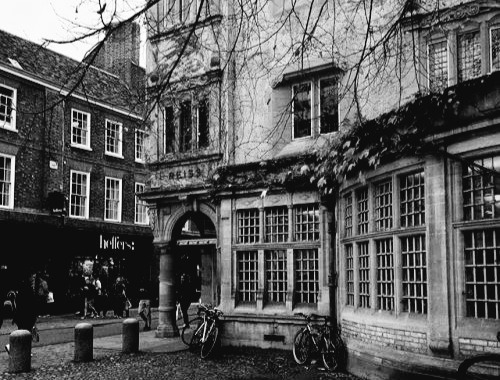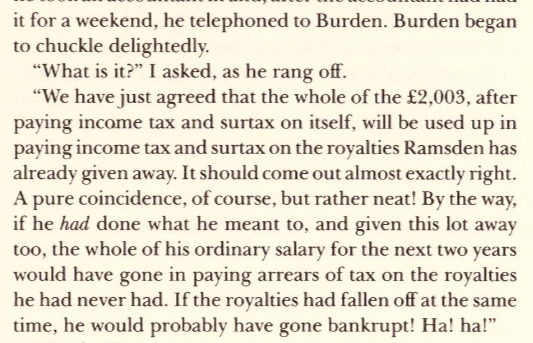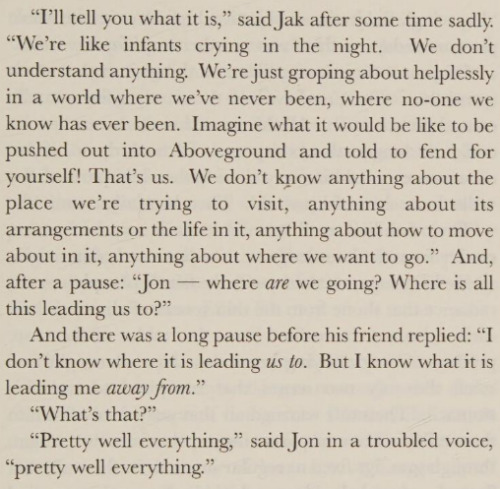#owen barfield
Explore tagged Tumblr posts
Text
It may be remarked in passing that there is no surer or more illuminating way of reading a man's character, and perhaps a little of his past history, than by observing the contexts in which he prefers to use certain words.
Owen Barfield, History in English Words
43 notes
·
View notes
Text










The Inklings
#i tried lol#none of these pictures belong to me#the inklings#inklings#c.s. lewis#j.r.r. tolkien#owen barfield#hugo dyson#nevill coghill#charles williams#christopher tolkien#dark academia#aesthetic#oxford#british#england#academia#black and white
9 notes
·
View notes
Text
Perennialism vs. Redemption
Perennialist - someone who thinks only the lasting ideas should be focused on in education. Things don't really change.
Barfield's ideas and philosophies came to center on the notion that human consciousness had been individuated for a purpose in the past, but that it was headed for a future where we would once again be connected, would regain paradise, without losing our individuality.
This lead him to Christ, albeit unconventionally. He saw in the teachings of Christ (being one with the Father and yet himself, etc..) the things he had arrived at by other means. He came to see Christ as the turning point in the evolution of human consciousness.
From an interview with Barfield near the end of his life:
Barfield: I can understand the tendency to turn back to the past.... But in the long view I cannot doubt that what is so understandably sought for now in the past (or, as might be objected, in the “eternal” outside time and space, for which the “past” often seems to stand in Perennialist thought) will eventually be found to lie in the future, though “with a difference”— the very difference for which the whole process was set in motion! We only have this abyss to cross, this intersection of time and eternity, the horizontal and the vertical. And this is the Christian symbol par excellence. Wetmore: This Christian image of the intersection at the center of the cross, is it so relevant to your view? Barfield: Indeed it is. God became Man. The Incarnation of the Word is the meaning of human history. Christ was resurrected and the great process of the Redemption of Creation began. This is too complex a subject to go into lightly, and I, in any case, am not qualified to give the answers. But, ultimately, we are talking again here of the overcoming of the polarity of I and the World. Since the Incarnation, Passion, and Resurrection, I cannot see how the final meaning of the evolutionary dimension, the redemptive dimension, however difficult it may be to reconcile it with the Perennialist position, can be denied.
0 notes
Text
Barfield, alas, could not support himself by sitting around and thinking about the nature of reality and reading poetry. He moved to London and became a lawyer. Lewis became a client.
Law wasn't something he particularly wanted to do. He wrote a book (This Ever Diverse Pair) that divided Owen the Man and Owen the Lawyer into two people, calling his lawyer alter ego 'Burden.' He wrestles with him, sometimes literally.
In one chapter he recounts (with changed names, of course) the time he had to get Lewis out of a pickle.
Early on, Lewis got in the habit of living off of his teaching salary and having his publisher anonymously send his royalties to other people. If there was a student who couldn't pay his tuition, a widow who was broke, etc...
Barfield recounts how frustrating it was to have Lewis as a client. Lewis not only didn't understand numbers and money, he didn't care. And it never occurred to him that he had to pay taxes on royalties that he never saw.
Thankfully, after one particular royalty check, it occurred to Barfield to inquire about the whole thing. He scrambled to fix it.

He managed to set up a trust fund so it wouldn't happen again.
Lewis dedicated The Lion, the Witch, and the Wardrobe to Owen's daughter Lucy.
Barfield is called the first and the last Inkling. He lived to be 99.
1 note
·
View note
Text
Forcible Shakings
September 1938 -
This is how I was thinking that night, about the war danger.
I had so often told myself that my friends and books and even brains were not given me to keep: that I must teach myself at bottom to care for something else more (and also of course to care for them more but in a different way) and I was horrified to find how cold the idea of really losing them struck...
I did in the end see (I dare not say ‘feel’) that since nothing but these forcible shakings will cure us of our worldliness, we have at bottom reason to be thankful for them...
I have a lot more to say on this when we meet. That is, if we meet, for of course our whole joint world may be blown up before the end of the week... If we are separated, God bless you, and thanks for a hundred good things I owe to you, more than I can count or weigh. In some ways we’ve had a corking time these 20 years.
-C.S. Lewis
0 notes
Text
Caring for Nature with an Inkling Spirit
I never thought I would become an apiarist, but living in forests of America’s Pacific Northwest made this a logical stage in my growth as a naturalist. And I’m convinced that if he had known how simple it is to promote healthy bee populations, C.S. Lewis would have joined me in the hobby. After all, he delighted in their work ethic, describing the moment of their Narnian creation with the…

View On WordPress
#Bees#Britain#Bumblebees#C.S. Lewis#Cecil Harwood#China#England#Famine#Honeybees#J.R.R. Tolkien#Mason Bees#Narnia#Nature#Owen Barfield#Poetry#Pubs#Virgil#Wales#Writing
0 notes
Text
However, in European history, as the classical languages of Greek and Latin gave way to the vernacular languages of Europe it was the active voice that was given more and more priority in how the world was talked about and thought about. The active voice is the grammatical voice that speaks as if an actor can act without being affected by the action, and can, if they wish, reverse the action. It is the voice that says that the drift is the end product of the driving wind, the cast the end product of the casting, the throw. This is the voice that laid the ground for the seemingly detached observer of modern science, the distanced actor of technology – and its passive twin our sense of the environment as mere resource or instrument (Romanyshyn 1989). Owen Barfield describes this as a process of ‘internalization’,‘the shifting of the centre of gravity of consciousness from the cosmos around him into the personal human being himself’ (Barfield 1954: 166-7).
Bronislaw Szerszynski in (PDF) Postprint version – to appear in Performance Research. Drift as a planetary phenomenon
I keep pointing to a Podcast discussion between author Sarah Jaffe and Kelly Hayes about how grief shapes our struggles because it really touched a nerve. We neglect grief at our peril. In their discussion Jaffe told about interviewing Namwali Serpell about Serpell's novel The Furrows in Bookforum, Mourning Routine. Serpell pointed to this essay by Bronislaw Szerszynski.
When I first opened the essay I didn't quite know what to do with it. I wondered what are Performanc Studies? I could tell there was a bunch of academic stuff that was going to take me some time to sort through, so I put it aside. When I finally got around to reading the essay I found it such an enjoyable and enlightening read. Of course, I did have to go look up stuff. Two links gleened from the effort to enjoy: I was pleased to discover a beautiful new translation of Johan Huizinga’s most well known book Autumntide of the Middle Ages. The edition is illustrated with 300 illustrations of works Huizinga references in the book. If you like books it's worthwile clicking on the link. The Wikipedia article on Owen Barfield was helpful to me as I hardly knew his work at all. The book referenced by Szerszynski was first publised in 1926.
7 notes
·
View notes
Text

"The morality of imagination is complex, deep, and far-reaching—especially because imagination itself is still in its early stages of development. I’ve mentioned before that imagination and goodness aren’t the same thing. However, I believe that, if we pay attention, we can sense a close and unique connection between them in our time. This connection was a key insight of William Blake, a visionary thinker who saw imagination as the highest virtue. He believed that taking things too literally—something that supports idolatry—is the great flaw of our age. But we must tread carefully in understanding this."
– Commentary on William Blake by Owen Barfield (paraphrased)
“Barfield refers to the "morality of imagination" as the ethical or moral dimension of how we use our imagination. Imagination isn't just about creativity or fantasy; it's also about how we perceive and interpret the world around us. The way we imagine things can deeply influence our moral choices and values.
The author suggests that imagination is still developing and isn't yet fully understood or appreciated in its role in guiding our moral decisions. While imagination and goodness aren't the same, the author believes there's a special connection between them. For instance, a rich imagination can help us empathize with others, envision better possibilities, and challenge harmful beliefs or practices.
In this context, the "morality of imagination" is about using our imaginative abilities to go beyond literal interpretations and rigid thinking, which can lead to idolatry or blind adherence to harmful ideas. Instead, imagination can guide us toward more compassionate, flexible, and morally sound perspectives. William Blake, whom the author mentions, saw imagination as a crucial virtue because it helps us break free from narrow, literal views that can trap us in outdated or harmful moral frameworks.” - Michael Maciel
6 notes
·
View notes
Text
mar and i have been reading about and discussing tolkien's cosmology and philosophy in lotr and the life experiences of his that doubtlessly informed them and i keep finding myself uncomfortable in a way i usually am not when it comes to objective or historical looks at christianity (for background i was raised evangelical christian and negatively affected by it so i have personal issues with it at times) & upon thinking about it i think it has to do with he and his contemporaries coming up in an era when a lot of people were finding once-reassuring belief systems insufficient to the new demands & questions raised by modernism and industrialization. Which like had sort of been going on for ~400 years the way owen barfield (who was in the same social circles as tolkien) wrote but i think those recurring uncertainties meeting the brutality of the great war gave everyone struggling to remain faithful a new, harder trial to endure.
4 notes
·
View notes
Text

We do indeed create "our own reality"... But this is Co-creation - which makes all the difference
by Bruce Charlton
Modern Man has the unavoidable freedom and capability - and, potentially, the curse! - of creating his own reality; as we see all around us as a matter of daily observation.
But this creating of reality is actually a co-creation; or (as Owen Barfield terms it) a participation.
In other words; we are each creating our own reality, but using the 'material' of God's ongoing divine creation.
What this means is that our personal creation may be in-harmony-with pre-existing divine creation, with the knowable universe... Or against it.
Each Being, including ourselves, can know the universe only by his own participation in it: All possible knowledge is participation, because uncreated reality is unknowable (unknowable because it is purposeless, meaning-less chaos).
Therefore we must and do create the reality by-which we each live; but we can get it right - or wrong.
And getting it wrong means being on the side against God's creative purposes and methods.
In a world that is overall ruled by demonic powers; anyone who (whether passively, or actively) accepts this worldly ways of creating reality will, of course, be set-against divine creation.
This is where 'heart-thinking' or 'direct-knowing' comes-in. It is how we can - if we consciously seek it - know whether, or not, our creation is in-harmony-with the divine.
When our thinking is 'mundane' - when it consists of 'facts' and concepts derived from this-worldly demonic sources; then naturally we will never become aware that our personal created world is a kind of evil delusion...
Only when our discerning and evaluating thinking is active, conscious, primary-thinking; thinking by our real, divine selves; will we know whether the world we personally-inhabit is true to God's creation - or against it.
6 notes
·
View notes
Text
About
Autodidact, passionate intellectual. INFP, 5w4. Male (he/him), married, age 55. Currently living in New York state. I would describe my faith (i.e. an ontological orientation) through the lens of a critical post-Christian humanism, rooted in the Christian contemplative apophatic tradition.
Essential influences include: T.S. Eliot, Byung-Chul Han, Simone Weil, Iain McGilchrist, Maggie Ross, Owen Barfield, Kathleen Raine, Rainer Maria Rilke, Denise Levertov, Søren Kierkegaard, Meister Eckhart, Nicholas of Cusa, Gregory of Nyssa, Pseudo-Dionysius, J.S. Bach, Arvo Pärt, Akira Kurosawa, and Andrei Tarkovsky.
Some personal interests: poetry, philosophy, theology, literature, poetics, the history of ideas, etymology, art, film, classical music, and long, solitary saunterings in the woods.
—JMS, 2025
1 note
·
View note
Note
Have you ever read any Owen Barfield or have any interest in anthroposophy in general?
I'd like to get into anthroposophy, but I haven't yet, and also haven't yet read Barfield.
0 notes
Text
Thinking With Owen Barfield (dialogue with Ashton Arnoldy and Daniel Garner)
Ashton Arnoldy and Daniel Garner joined me to discuss the work of Owen Barfield. Here’s a quick summary of what we discussed: Introduction to Barfield: Daniel’s Journey: Daniel describes his journey from traditional philosophy to discovering alternative thinkers like Michael Polanyi, Alfred Korzybski, and eventually Rudolf Steiner, which led him to Barfield. He emphasizes how Barfield’s ideas…

View On WordPress
0 notes
Text
As an author writing historical fantasy, even if not with the next-level attention to detail of JRR Tolkien, I can assure you that this kind of choice happens all the time. When writing my medieval-set books I am constantly on the alert for anachronistic language, for instance. No references to a heart "pumping" (mechanistic language about the body only began to be used in the enlightenment). No arrows being "fired" (this is a reference to gunpowder, and arrows before the invention of firearms were "loosed"). I'm sure I slip up all the time but the discipline does add up, and a little linguistic knowledge really helps. I found Owen Barfield's HISTORY IN ENGLISH WORDS particularly helpful.
Someone asked me to expand a little on a topic that was buried down in a big chain of reblogs, so I'm doing that here--it's about the use of the archaic "thee", "thou", "thy", etc. in LOTR and what it tells you about characters’ feelings for one another. (I am NOT an expert on this, so it's just what I've picked up over time!)
Like many (most?) modern English speakers, I grew up thinking of those old forms of 2nd person address as being extra formal. I think that's because my main exposure to them was in the Bible ("thou shall not...") and why wouldn't god, speaking as the ultimate authority, be using the most formal, official voice? But it turns out that for a huge chunk of the history of the English language, "thee," "thou," and "thy" were actually the informal/casual alternatives to the formal "you", “your”, “yours”. Like tú v. usted in Spanish!
With that in mind, Tolkien was very intentional about when he peppered in a "thee" or a "thou" in his dialogue. It only happens a handful of times. Most of those are when a jerk is trying to make clear that someone else is beneath them by treating them informally. Denethor "thou"s Gandalf when he’s pissed at him. The Witch King calls Éowyn "thee" to cut her down verbally before he cuts her down physically. And the Mouth of Sauron calls Aragorn and Gandalf "thou" as a way to show them that he has the upper hand. (Big oops by all 3 of these guys!)
The other times are the opposite--it's when someone starts to use the informal/casual form as a way to show their feeling of affection for someone else. Galadriel goes with the formal "you" all through the company's days in Lórien, but by the time they leave she has really taken them to heart. So when she sends them a message via Gandalf early in the Two Towers, she uses "thee" and "thou" in her words to Aragorn, Legolas and Gimli because now they're valued friends and allies. And--this is the big one, folks, that was already alluded to in my previous post--Éowyn starts aggressively "thou"ing Aragorn when she is begging him to take her along as he prepares to ride out of Dunharrow. She is very intentionally trying to communicate her feelings to him in her choice of pronoun--an "I wouldn't be calling you "thee" if I didn't love you" kind of thing. And he is just as intentionally using "you" in every single one of his responses in order to gently establish a boundary with her without having to state outright that he doesn't reciprocate her feelings. It's not until much later when her engagement to Faramir is announced that Aragorn finally busts out "I have wished thee joy ever since I first saw thee". Because now it is safe to acknowledge a relationship of closeness and familiarity with her without the risk that it will be misinterpreted. He absolutely wants to have that close, familiar relationship, but he saved it for when he knew she could accept it on his terms without getting hurt.
So, you know, like all things language-based...Tolkien made very purposeful decisions in his word choices down to a bonkers level of detail. I didn’t know about this pronoun thing until I was a whole ass adult, but that’s the joy of dealing with Tolkien. I still discover new things like this almost every time I re-read.
2K notes
·
View notes
Text
Owen Barfield on Lewis -
I acted throughout his later life as his solicitor. And a very strange experience it was.
There are clients who are excessively absorbed in their own affairs and always ready to talk eagerly about them even if you are only meeting them for dinner. The difficulty in his case was to get him to talk about his own affairs at all, even in the office, let alone anywhere else, for more than three minutes at a time. His great idea was to wash all that out and get on to something really interesting. It sometimes made things rather difficult; after all, one has to have instructions of some sort.
He gave two-thirds of his income away altogether and would have bound himself to give the whole of it away if I had let him. Because of the intricacies of the English income-tax system, he had to do the giving through somebody else as his trustee, and I was that trustee.
There were substantial donations to charitable institutions, but what he really liked was to find someone through a personal connection or hearsay whose wants might be alleviated. He was always grateful to me for suggesting any lame dog whom my profession had brought to my notice.
But that was not all. He frequently got involved in long and arduous correspondence with the lame dogs and, remember, he did not like writing letters. He hated interruptions to what he felt was his real work of reading and writing books.
I am amazed by the number of letters this man, who did not like writing letters and did not like interruptions, actually wrote, the number of individuals with whom he maintained for years a long and quite intimate correspondence, individuals whom quite often he had never met; and you must remember that the lame dogs were only one group among the legion of his correspondents.
There were other people who were not in financial need but who had been helped by his books, very often helped in great psychological difficulties. One such eventually became his wife.
They wrote to him from all over the world with their personal religious and moral problems. And I doubt if any of them, unless they were lunatics beyond the fringe, went without a reply.
Often, moreover, it was not just one or two letters, but a long and regular exchange. An invalid lady in Washington, whom he had never met, recently sent me for safekeeping a box of the letters she had received from Lewis, all in his handwriting, during his last years. There must be well over a hundred of them. When she was expecting to have an operation, he wrote her as often as once a week. And she is only one.
-Owen Barfield
0 notes
Text
Lewis was a rather sensitive lad, but was scarred by some early experiences. His father's emotional ups and downs, which became even worse after his mother died, made him distrust emotion itself.
Then life at his first boarding school only made things worse.
In another way too Oldie’s school presently repeated my home experience. Oldie’s wife died; and in term time. He reacted to bereavement by becoming more violent than before. You will remember that I had already learned to fear and hate emotion; here was a fresh reason to do so.
Then came the first world war and all its horrors. A division had formed. The pure pleasure that came from escaping into the world of literature and imagination, and this grim, dark reality. And never the twain shall mix.
The two hemispheres of my mind were in the sharpest contrast. On the one side a many-islanded sea of poetry and myth; on the other a glib and shallow “rationalism.” Nearly all that I loved I believed to be imaginary; nearly all that I believed to be real I thought grim and meaningless.
Into this picture came a dude named Owen Barfield.
Barfield was a budding philosopher, poet, and language nerd. He became entranced by the idea that you could go back through time and trace the development of human consciousness through the changing meaning of words. That the experience you get in reading some poetry is your consciousness literally changing, slipping back into an older form, a memory if you will.
His writing is often way over my head, but you can give it a try. His classic work is probably Poetic Diction, which he dedicated to Lewis. Barfield influenced Tolkien as well.
Lewis and Barfield had long arguments about the nature of imagination, truth, and reality. They called it The Great War. (I have attempted to read those letters and it might as well be jibberish to me, but hey.)
Barfield:
If someone put a pistol to my head and asked me what was Lewis's relationship to imagination and gave me sixty seconds to answer him, I would have to say that he was in love with it. He liked it so much and valued it so much as an experience of the human soul that he did not want its purity tampered with in any way. If you tried to say it had anything to do with truth, the discovery of truth, then it would not be imagination. That's what the Great War is about, whether imagination is a vehicle for truth or whether it is simply a highly desirable and pleasurable experience of the human soul.
Slowly Barfield began to convince Lewis that he did not need to divorce reality from his imagination and emotions.
Later in life, Barfield wrote a short novel called Night Operation. It's been called science fiction. Really it's barely-veiled biography of the beginning of three young philosophers' intellectual journey. In this story, Lewis is represented by Jak. Barfield is Jon.
Jon discovered in the next few moments, as he had never quite discovered before, though he had sometimes suspected it, that there were two Jaks... Jon had prepared himself for an even longer silence. But Jak hardly hesitated at all. In the last few months he had been more in step with Jon than Jon realized. In fact he had gone a little way ahead. He had been smelling the same smell even more pungently. But he had said nothing, because he was getting used to having strong feelings and accepting them…
The basic plot is that their civilization went underground into the sewers years ago and these three decide to climb to the Aboveground and see it for themselves.

1 note
·
View note